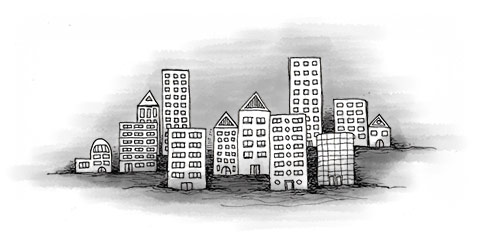The housing options available range from luxurious apartments and condominiums, to mountain cottages. Several areas in Costa Rica host large communities of foreign nationals, particularly Canadians and Americans. Most of Costa Rica’s population lives in the Central Valley. Large concentrations of foreigners are found in areas in and around Esczú, Rohrmoser, Guanacaste and Jacó.
Things to bear in mind for your search
You do not have to be a resident of Costa Rica to buy and own property there. In fact, foreigners have the same rights as Costa Ricans in buying property. The only exception the so-called Terrestrial Maritime Zone. The Maritime Zone law means that all beaches are public property, that is, the first 50 meters (164 ft.) above the mean high tide line is public. With some exceptions, there are no private beaches in Costa Rica. The exceptions refer to landholdings in port areas and old land grants and agreements dating from before 1973. The Maritime Zone legislation further states that the first 150 meters (492 ft.) after the first 50 meters (164 ft.) is called the Maritime Zone. As a foreigner you are required to have a minimum of five years of residency in Costa Rica in order to buy property of which more than 49% is located in the Maritime Zone.
Accommodation prices in Costa Rica are determined by the size and location. This holds for both renting and buying. Accommodation is measured in square meters. The main factor for the price is the infrastructure of the area you plan to live. More remote areas with less access to healthcare, telecommunication, shopping, nightlife, beach, etc. are lower in price than housing located on the beach, in or very near the city or facilities. If you prefer moderate temperatures, consider living at some altitude. The coastal areas and lowlands have higher temperatures.
Another thing to keep in mind is that there are restrictions to the land use in Costa Rica. In order to find out what restrictions apply to the land you are interested in you should contact the various authorities. You can either do this yourself or make use of professionals such as Real Estate Brokers and Engineers.
The authorities you might want to contact are:
- Ministry of Agriculture and Cattle (Ministerio de Agrigcultura y Ganadería, MAG)
- National Institute of Housing and Development (Instituto Nacional de Vivienda y Urbanismo, INVU)
- Ministry of Health (Ministerio de la Salud)
- Ministry of Environment, Enegry and Telecommunications (Ministerio de Ambiente, Energía y Telecomunicaciones)
- Ministry of Housing and Human Resources (Ministerio de Vivienda y Asentamientos Humanos, MIVAH)
- Water and Sewage Authority (Instituto costarricense de Acueductos y Alcantarillados, AyA)
- Ministry of Public Works and Transportation (Ministerio de Obras Públicas y Transportes, MOPT)
- Institute of Farming Development (Instituto de Desarrollo Agrario, IDA)
- The municipality the property is located at
It is recommended to make use of professionals in Costa Rica. Attorneys are essential for purchasing any property, they can also help you investigate the property. Real estate brokers and civil engineers are needed to file any construction application. Luckily, in Costa Rica several professional groups are required to register at the professional association of their field of expertise. Through these associations and their websites it will be no problem finding the professional you need. Consider asking other expats and your country’s embassy or consulate in Costa Rica for recommendations.

